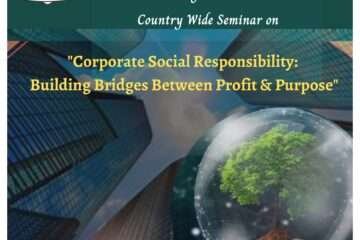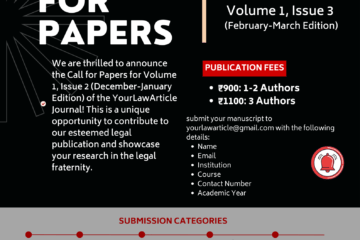| CASE NAME | Dr. M. Ismail Faruqui v. Union of India |
| CITATION | AIR 1995 SC 605 A |
| CASE TYPE | Writ Petition (Civil) |
| CASE NO. | Writ Petition (Civil) No. 208of 1993 |
| COURT | Supreme Court of India |
| PETITIONER | Dr. M. Ismail Faruqui and Others |
| RESPONDENT | Union of India and Others |
| BENCH | Justice M.N. Venkatachaliah, Justice A.M. Ahmadi, Justice M V Verma, Justice G Ray, Justice S Bharucha |
| JUDGMENT DAY | 24th October, 1994 |
INTRODUCTION: –
The Supreme Court considered the issue of the State acquiring religious property in this case. A sanctuary, church, mosque, and so forth are basically enduring properties dependent upon security under Articles 25 and 26. Every immovable asset is susceptible to acquisition. Even though offering prayers or worship is a religious practice, doing so at every location where prayers can be offered is not an essential or integral part of the practice unless the location has a particular significance for that religion. The supreme court ruled in the 1994 case that namaz could be performed anywhere and that a mosque was not required. Additionally, it had decided that the government could acquire the mosque’s site. The petitioner, Ismail Faruqui, had challenged the validity of the 1993 Acquisition of Certain Area at Ayodhya Act, which authorized the acquisition of 67.703 acres in the Ramjanmabhoomi-Babri Masjid complex in Ayodhya.
FACTS: –
The Vires of Ayodhya Act was challenged in both the High Court and the Supreme Court. In the case of M. Ismail Faruqui (Dr) v. Union of India, (1994) 6 SCC 360, the Apex Court decided to transfer the petitions that had been filed with the High Court, heard all of the issues together, and referenced Article 143 (1) of the Constitution. The High Court proceeded to consider the Suits on their merits in light of the preceding SC judgment, with one exception: it had narrowed the scope of the dispute that was now being considered in all of these suits. The contested area now consists solely of the space where the structure and the premises of its inner and outer courtyards once stood. Because it was legally acquired in accordance with Section 3 of the Ayodhya Act, the additional land is outside the scope of these suits.
ISSUES: –
(a) In light of the Commissioner, Hindu Religious Endowments, Madras v. Sri Lakshmindra Thirtha Swamiar of Sri Shirur Mutt, and other cases, is it possible to decide an essential practice without thoroughly examining the faith’s beliefs, tenets, and practice?
(b) Is integrality and essentiality the same criteria for determining the essential practice?
(c) Does Article 25 protect only particular faith-specific beliefs and practices, or does it cover all faith-specific practices?
d) Do Articles 15, 25, and 26 (read with Article 14) permit comparisons of religious significance?
CONTENTION OF THE APPELLANT: –
The Court needed to figure out the setting of perceptions made in the judgment which as per the appealing party were sketchy and to conclude whether the said perceptions outfit any ground for reevaluation of the Constitution Seat judgment. Ashok Bhushan J. made the observation, citing that whether a particular religious practice is an essential or integral part of the religion must be considered in light of the religion’s doctrine, tenets, and beliefs. What Dr. Dhavan fought was that the Constitution Seat for this situation, without there being any thought of the centrality of religion, mentioned the sketchy observable facts.It was seen that the setting for mentioning the said observable fact was a case of invulnerability of a mosque from obtaining. The Constitution Bench was asked to consider the question of whether every mosque is an essential component of Islam’s religious practice, and if so, whether its acquisition would inherently violate Articles 25 and 26. The remark was made to emphasize that the mosque is not protected from the acquisition. What the Court implied was that except if the spot of presenting of petitioning heaven has a specific importance so any deterrent to love might disregard right under Articles 25 and 26, any obstacle to presenting of supplication at any spot will not influence right under Articles 25 and 26. The perception need not be perused comprehensively to hold that a mosque can never be a fundamental piece of the act of the religion of Islam.
CONTENTION OF THE RESPONDENT: –
At the point when the matter arrived at High Court, the Muslim disputants requested that the case ought to be heard by a bigger seat of seven appointed authorities as it relates a land having a place with a mosque and consequently has suggestions on the opportunity of religion, a key right ensured by the Constitution. The case is currently before a bench of three judges led by India’s Chief Justice Dipak Misra. Using the Supreme Court’s Ismail Faruqui decision as a basis, the Hindu lawyers opposed the demand. They said that the matter was for some time settled. They asserted that because a mosque is not a fundamental component of Islam, a title dispute ruling does not violate the right to religious freedom. The Muslim side then asked the Supreme Court to reconsider its 1994 decision in Ismail Faruqui, arguing that a mosque could not be separated from Islam.
LEGAL ASPECTS: –
In This case, the main concern was regarding Article 25 and Article 26 of the Constitution of India. Article 25, In contrast to Article 26 of the Constitution, Article 25 does not make any mention of property. Article 25 of the Constitution of India guarantees the right to practice, profess, and spread religion. However, the right to acquire, own, or possess property is not always included. In a similar vein, the right to worship at any and all places of worship is not included in this right. As a result, any restriction on worshipping at a particular location may violate the religious freedom guaranteed by Articles 25 and 26 of the Constitution.
Article 26 It appears from the decisions this Court has made, which are discussed further, that places of religious worship like mosques, churches, and temples are protected by Articles 25 and 26 of the Constitution. can be obtained through the sovereign power of acquisition of the State. Neither Article 25 nor Article 26 of the Constitution are in any way violated by this acquisition in and of itself. The sovereign power of the State to acquire property is unaffected by the management takeover decisions.
JUDGEMENT: –
The Hon’ble High Court has held that the Option to Practice, Purport, and Engender Religion ensured under Article 25 of the Constitution doesn’t stretch out to One side of Love at pretty much every spot of love so any deterrent to revere at a specific spot in essence might encroach the strict opportunity ensured under Articles 25 and 26 of the Constitution of India. Articles 25 and 26 provide protection for religious practice, an essential component of that religion’s practice. While the proposal of petition or love is a strict practice, its contribution where such petitions to God can be offered wouldn’t be a fundamental or necessary piece of such strict practice except if the spot has specific importance for that religion to frame a fundamental or basic part thereof. Spots of love of any religion having the specific meaning of that religion to make it a fundamental or vital piece of the religion stand on an alternate balance and must be dealt with diversely and all the more respectfully.
CONCLUSION: –
The Supreme Court ruled that Muslims can offer namaz (prayer) anywhere, even in the open, and that a mosque is not necessary for the practice of Islam. Unless the Right to Worship at a particular location is itself an integral part of that right, the Right to Worship is not valid at any and all locations so long as it can be practiced effectively. Based on the aforementioned ratio, it is argued that offering prayer at Sri Ramjanamsthan, which is referred to as the Babri mosque in the plant, is permissible; however, offering prayer at any other location instead of Sri Ramjanamsthan is not permissible because the merit gained by worshiping at Sri Ram’s birthplace cannot be obtained elsewhere, which would be in violation of the sacred Divine Sacred Scripture of the Hindus and would result in the destruction of a most sacred Hindu shrine. The Islamic religion does not require a mosque, and Muslims can offer namaz (prayer) anywhere, even in open spaces. Therefore, the provisions of the Indian Constitution do not prohibit its acquisition. According to the Constitution of India, a mosque’s status and immunity from the acquisition in the secular ethos of India are the same and equal to those of other religions’ places of worship, such as churches, temples, and so on, regardless of its status as an Islamic country for the purpose of immunity from acquisition by the State in the exercise of sovereign power. It is neither more nor not exactly that of the spots of love of different religions. It goes without saying that religious property should only be acquired in unusual and extraordinary circumstances for the nation’s greater good, keeping in mind that such acquisition should not end the right to practice religion if the location has such significance. A mosque has the same acquisition power as any other religious institution, subject to this condition. As long as it can be effectively practiced, the right to worship does not extend to every location unless the right to worship there is itself an integral part of that right.
This artice is written by Ritti Ramya of Law College Dehradun, an intern under Legal Vidhiya




0 Comments